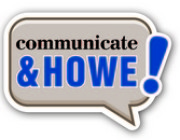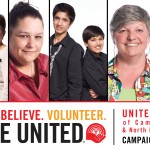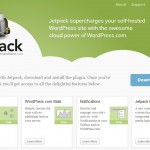Proceed with caution when using free services
I can hear him laughing all the way from the shores of Paradise Lake outside St. Clement’s, Ontario.
Long before anyone knew about the cloud, Callum McKee, the general manage of Outdoor Services for the Kitchener-Waterloo YMCA, was suspicious of online services-especially free ones. His primary concern was the loss of ownership of the content. What if the service disappeared or changed its terms of service after you became dependent upon it? He was also concerned about losing control of the data. He preferred tech solutions that he owned and controlled.
McKee, who used a tablet computer before an iPad existed, is looking like a visionary these days as free services especially those related to social media are disappearing or continuously changing.
Goodbye Tweetdeck desktop! Goodbye Google Reader!
I’ve been hearing McKee’s laugh a lot over the past few months.
To me, Twitter equals Tweetdeck. Not the web version that is only available now but the free desktop version that was how it came in 2009 when I joined Twitter. My experience of Twitter is inseparable from Tweetdeck.
Then earlier this year Twitter which now owns Tweetdeck announced that it was withdrawing support for the desktop version (aka Tweetdeck Air) in June. Effectively, they were killing it and trying to transition folks to the web version.
I’ve never been a big Google Reader user but I know many are and it’s still the online tool of choice for managing news feeds. Followers of blogs especially a number of blogs relied on it to manage their content. It also received its death notice recently to much dismay.After being in denial for months, I am now trying out another option but I’m still suffering withdrawal symptoms from losing a tool that I depended upon-and can’t keep no matter whether I’m willing to pay or not. I’m not alone. There was still a strong base of users of the desktop version of Tweetdeck.
Speculation is rampant that Google Alerts is also on the way out.
So McKee sits on the dock overlooking Paradise Lake and laughs, He knew. He warned us.
Proceed with caution using free services
The free model that has been powering online services (aka freemium) over the past decade is proving too good to be true-or at least too good to last.
Should we avoid them all? No. Freemium services and also paid services on the cloud are extremely useful tools. For social profits in particular, they offer an opportunity to get the best bang for your buck. You can get much more than is possible using your resources or finances in other ways.
But I think it’s important to go in with your eyes wide open and understand that a free service can change or disappear without much if any notice or even an alternative offered. You also want to make sure that you don’t give over full control of your content to a free service. Know that what everything could change without any chance for input.
Use them. Learn how to maximize your use of them to experience the greatest possible benefit. But don’t depend upon them-or as the old saying goes put all your eggs in the same basket.
Your own and control your website
While using and promoting freemium services, I’ve always been of the opinion that your website is the centre of your online or digital strategy. It’s the one space that you own and control and
more than ever I’m convinced of its central role. A key objective of your use of social media and other free services should be to drive traffic to your website.
Facebook can’t replace your website
Facebook is changing…again! Just when you think you might be getting a handle on using Facebook for your organization, it introduces social graph or a new layout for pages or a changes how users see updates or…
Yet Facebook is probably the one free service that the social profit sector may depend upon too much. Some may even use it as their website-or be tempted to go that route. I know my local neighbourhood association uses Facebook instead of a website.
That’s where I agree with McKee’s wisdom. Don’t do that!
There are many good reasons not to use Facebook as your primary online presence. Not everyone sees what you post on your Facebook page-and some perhaps many-may never see what you post. Also few people come to your page after they like it or that they can’t easily find content that isn’t in the last few posts if they do.
Why would you allow Mark Zuckerberg and friends to decide how you can share your content?
Don’t give up control over how you present yourself. You can’t count on Facebook to make decisions that are in your best interest. They will only make decisions that are in their best interest and that means what makes them the most money. That may coincide with your best interests but don’t count on it and don’t expect to be consulted before hand or that they’ll respond to concerns shared afterwards.
You’re not a customer who has any pull in Facebook decision making. You’re a product that they get to decide how to feature.
Make sure you have a web presence that you own and control that regularly attracts visitors-preferably one that attracts repeat visitors and engages them.
Does McKee have the last laugh?
I don’t believe that McKee has the last laugh. There is definitely wisdom in his approach. Be aware that a free service can disappear or change at any time. Don’t give up control to others.
But I still believe there is a place for free services. Facebook, for example, has a place in the communications toolbox of most social profits.
Just proceed with caution with using them and have an online presence that you own and control.
There’s life after the disappearance of Tweetdeck Air and Google Reader. There may be some discomfort but they served a purpose and we’ll all find new ways-likely better ways-to move on and manage our online lives.







